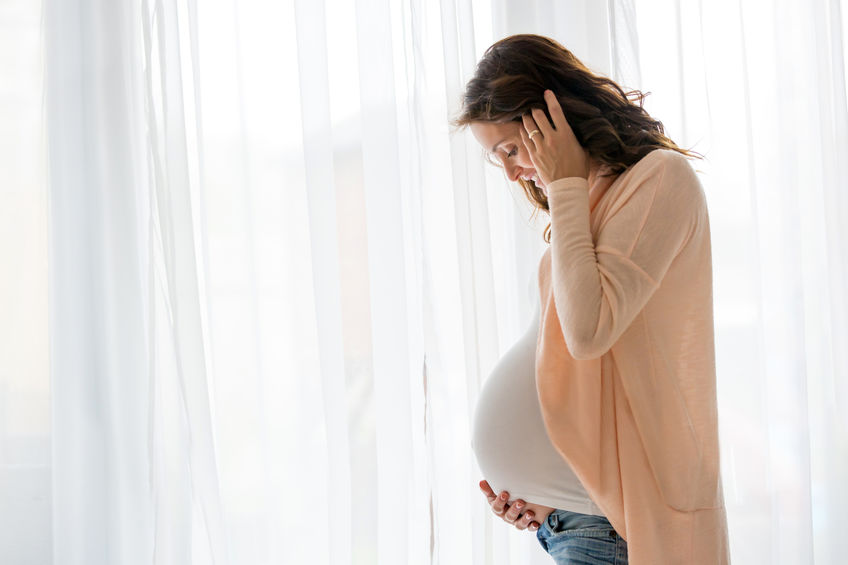Pregnancy and Hair Loss
Hair Loss During Pregnancy and Post-Partum Hair Loss Advice at Rituals Hair Lab in Scotter, Near Gainsborough

As we know, pregnancy is a challenging time for a woman’s body. Major hormonal changes are taking place as well as the physical demands of supporting a growing baby and the birth itself. All of these factors can have a significant impact on the growth cycle, density and condition of your hair.
At Rituals Hair Lab in Lincolnshire, we are experienced in dealing with pregnancy and post-natal hair loss. Book a consultation with a Rituals Hair Lab expert so that we can assess your hair and recommend treatments to help restore your hair’s strength and thickness. Pregnancy hair loss is a common issue, albeit it one that is rarely discussed, you can be assured of a sympathetic and understanding approach at our hair loss clinic near Gainsborough.
Treatments For Hair Loss After Pregnancy
Scotter
Gainsborough
Hull
Grimsby
Doncaster
Lincolnshire
UK
How Does Pregnancy Affect Your Hair?
For many women, their hair looks thicker, grows longer more quickly and is super glossy during pregnancy, but this is not the case for everyone. Some women experience hair fall, or hair that is dry and brittle, particularly in the first trimester. These changes in your hair are caused by fluctuations in your hormone levels as well as the demands pregnancy places on the body.
When you are pregnant, your oestrogen levels increase, keeping more of your hair in the anagen phase (the growing phase) for longer, delaying it entering the telogen (shedding) phase. This results in the longer, thicker and healthier looking hair that can be experienced, particularly during the third trimester.
What Causes Pregnancy Hair Loss?
Despite the change in oestrogen levels, some pregnant women can experience pregnancy hair loss, particularly in the early stages. Surging oestrogen and progesetrone levels at this stage can trigger a response in the hair’s follicles, which can cause the hair to become brittle and thin. The shift in hormones during the first trimester can put enormous stress on the body, and the shock of this can trigger the hairs on your head into the telogen phase. This can result in a condition called telogen effluvium in which you can shed up to three times the average daily hair loss of 100 hairs.
Hair loss during pregnancy can also be caused by factors including iron deficiency, severe morning sickness (Hyperemesis Gravidarum), thyroid issues and gestational diabetes. If you are concerned about any health concerns it is important that you speak to your doctor.
Each pregnancy is different as is each woman’s response to the changes in her body. At Rituals Hair Lab, we are highly experienced at diagnosing the causes of hair loss and recommending treatments to help. Book a consultation by completing the form below and we can advise you on how to protect your hair during your pregnancy and help to restore it to its usual health and thickness.
Why Do I Have Post Natal Hair Loss?
 Post-natal hair loss is a common problem after giving birth to your baby. Increased hormone levels during pregnancy can cause women to retain more hair than usual, resulting in those full glossy locks you've enjoyed. Once the hormone levels drop when the baby is born (or you finish breast feeding), your hair returns to normal, and the hairs that were being kept in the anagen phase now all move to their shedding phase.
Post-natal hair loss is a common problem after giving birth to your baby. Increased hormone levels during pregnancy can cause women to retain more hair than usual, resulting in those full glossy locks you've enjoyed. Once the hormone levels drop when the baby is born (or you finish breast feeding), your hair returns to normal, and the hairs that were being kept in the anagen phase now all move to their shedding phase.
This can cause alarmg as you might shed a large number of strands over short period of time, but rest assured that this shedding is usually normal. Post-partum hair loss normally resolves itself without treatment. Although you may see more hair coming out when you wash, brush and style your hair, these actions won’t actually increase the shedding, although we’d advise treating your hair gently during this time and following the steps below to protect it.
Why Isn't My Hair Growing Back After Pregnancy?
Post-partum hair loss usually peaks approximately 2 -4 months after giving birth and should slow down by around 6 months. If after this stage you find your hair is not recovering its usual volume, we’d recommend seeking advice from a hair loss specialist. Book a consultation at Rituals Hair Lab in Scotter, Near Gainsborough, so that we can help identify any underlying issues which may be causing your hair loss.
How To Look After Your Hair During Pregnancy
Your hair and scalp may need extra care both during and after your pregnancy. By taking good care of your hair after birth, it can help to ensure that the hair grows back normally.
You may wish to switch to a mild shampoo for thinning hair which our hair loss experts can recommend in our Lincolnshire hair loss clinic. Ensure that you treat your hair gently, brushing out tangles from the ends and avoiding pulling at the roots. Limit colouring and chemical treatments (some of which may not be suitable during pregnancy – check with your hairdresser) during your pregnancy.
We also recommend eating mineral-rich foods including iron and zinc, which are important for hair growth, as well as for your developing baby (but please be sure to check which foods and vitamin supplements you can take when pregnant or breastfeeding). If you are unsure, speak with your doctor or book a consultation with our clinic dietitian. Find out more about our dietetics services here.
Book a Consultation at Top Lincolnshire Hair Loss Clinic
If you are concerned about your hair loss or diet during pregnancy and would like to speak to a hair loss expert in confidence, please call the hair loss specialists at Rituals Hair Lab in Scotter, Near Gainsborough, on 01724 76441 or fill in the enquiry form below.


